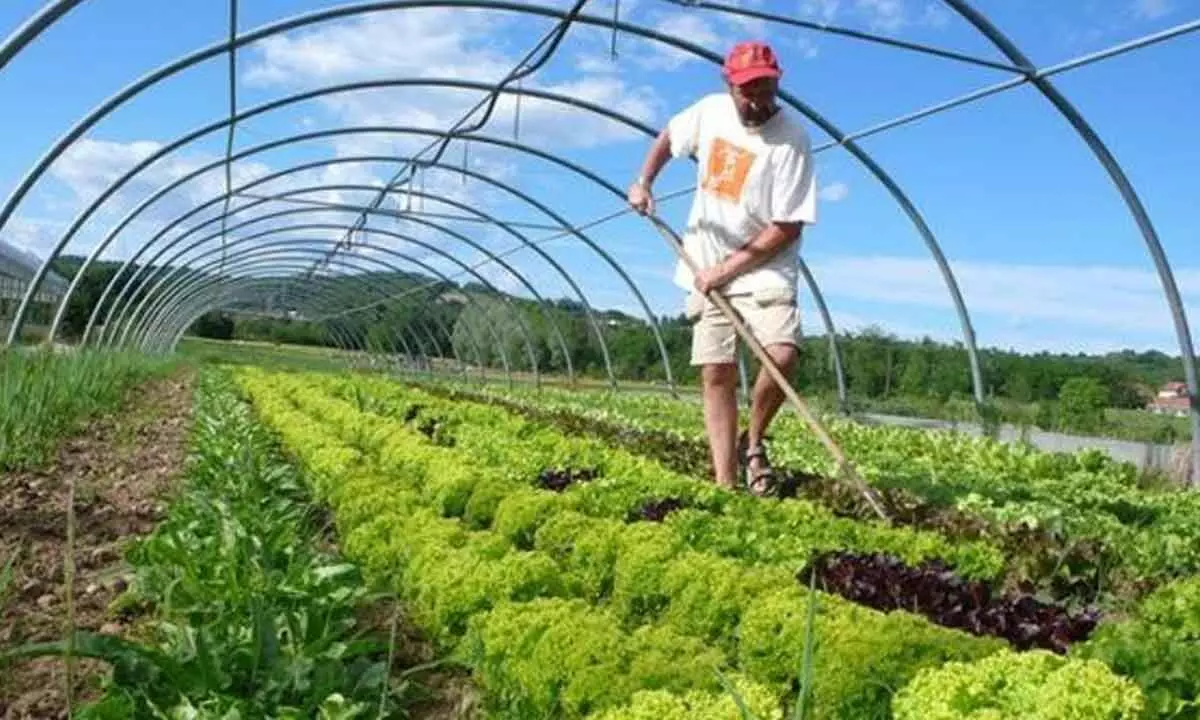The right way to adapt to organic farming

We have come a long way from the fundamentals of farming, and specifically organic farming, is a new development in this space.
We have come a long way from the fundamentals of farming, and specifically organic farming, is a new development in this space.
What is Organic Farming? Originally in India, organic farming was defined as the growing of crops through natural means without the use of chemicals produced industrially, but this has changed recently. Today, organic farming is characterised as using unaltered plant, animal, or earth-based inputs in the soil. Utilising natural ingredients for organic growth has several levels incorporated in the modern day. Crop rotation, green manures and compost, biological pest management, and mechanical cultivation are the main techniques used in organic farming.
Organic farming is like dealing with a newborn. It requires hard work but is definitely worth it. Here are a few important pointers to keep in mind are :
Organic farming demands attention
It is a labour-intensive and time-bound activity that has more stringent rules than traditional farming. But better returns and healthier soil are assured if everything goes right. All one has to do is pay close attention to the crop when it comes to immunising the crop against diseases and deficiencies. Like an infant requires the love of parents, so does Organic Farming. Although the investments in an Organic Crop double in terms of labour, money and time but the returns do too!
Don't rush, take one step at a time
If your land has seen complete use of chemicals over time, it won't be wise to just switch to organic farming in one go. Systematic planning and integrated management are important for a step-by-step transition. If you are an obese person who's planning to lose fat, you can't change your diet in one go. You have to let your body adapt to the change in mindset, diet, exercise and circumstances. You have to make your body resistant and stronger to be able to adapt. Similarly, you have to start by using organic products in small proportions for your land to be able to adapt to changes and then depending on factors like Geography, Temperature, Crop, Soil and many more you have to keep increasing the intensity and proportion for a healthy crop. It is about adapting to the 'Lifestyle' of the land so a systematic long-term plan will be beneficial.
Make it cyclical
Organic farming practices need to be repeated over and over again for the land to be adapted to the process. The cyclical process of creating compost from manure then using manure to farm and finally using it in the crop ensures your crop gets all the necessary nutrients to grow. And the process ensures that the crop is adjusted to the process.
Making the process full-proof
Even after such hard work and planning, there are chances of occurring unforeseen challenges. But there are steps one can take to able to avoid the pitfalls and succeed in growing Organic Crops. These are as follows:
• Minimise the risk of disease or deficiency with a constant watch and going by the book
• Employee-trained professionals who can guide you step-by-step
Adopt community farming because if one person decides to grow organic crops in the neighbourhood, it can fail due to water spillage or chemical spillage from neighbours. If a community adopts it as a whole they can help harvest healthy and prosperous produce together. It also has sub-advantages:
• Seeds become cheaper when a community demands for them together
• Organic fertilizers become more affordable and approachable.
• Pooling means constant guidance as well as more eyes on the crops so shared labour and time.
Another cheat-code one can utilise to be able to grow a good quality crop is to consider 'No Chemical Residue' farming. By definition, it is not just organic but a mix of both the practices to be able to produce the right crop. You get the flexibility to use chemicals on your crop but in a systematic way and with measured quantities such that the end product has no chemical residue left. For this, the farmer has to be understanding of the crop, the timing and the quantity. For instance, if a crop takes 150 days to harvest, there should be a 21-week schedule that should be maintained by the farmer that defines the systematic steps for its life cycle. Chemicals should be administered within the 6-8 weeks period within its Maximum Residual Limit (MRL) in order for it to be off by the 21st week of harvest. This planning is necessary for modern-day farming and can be utilized for better results by those who plan to implement it.









